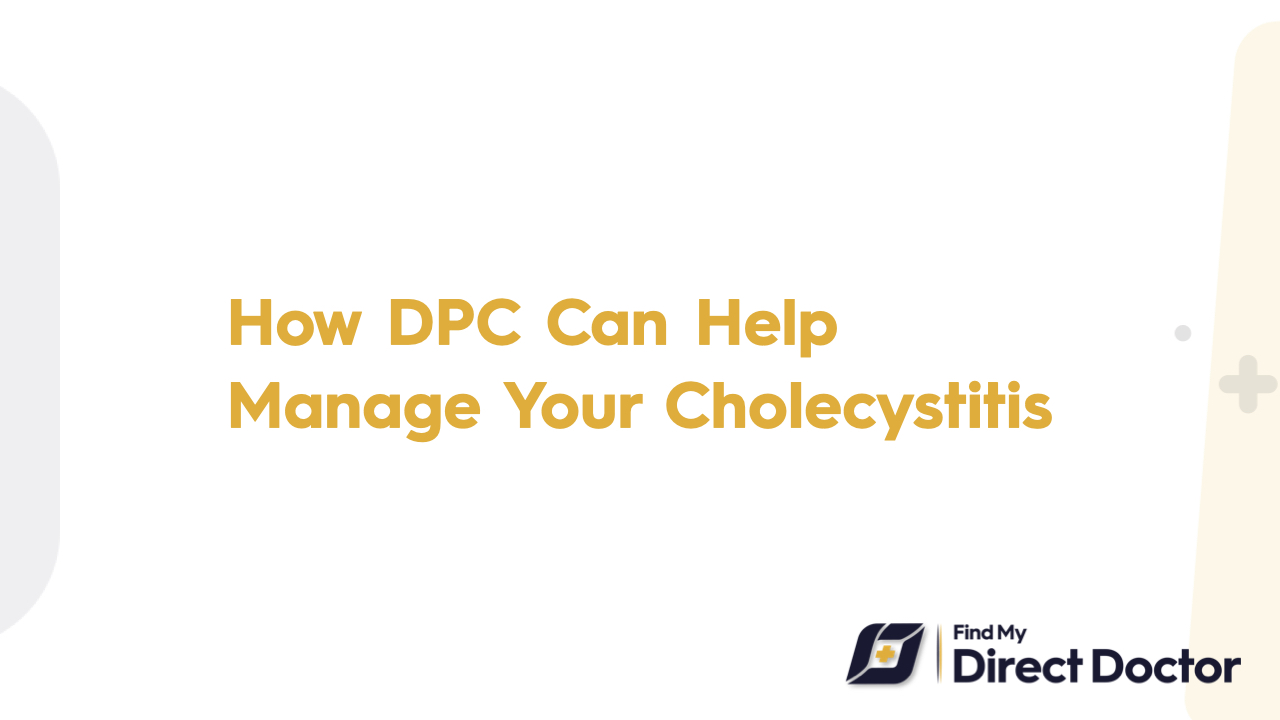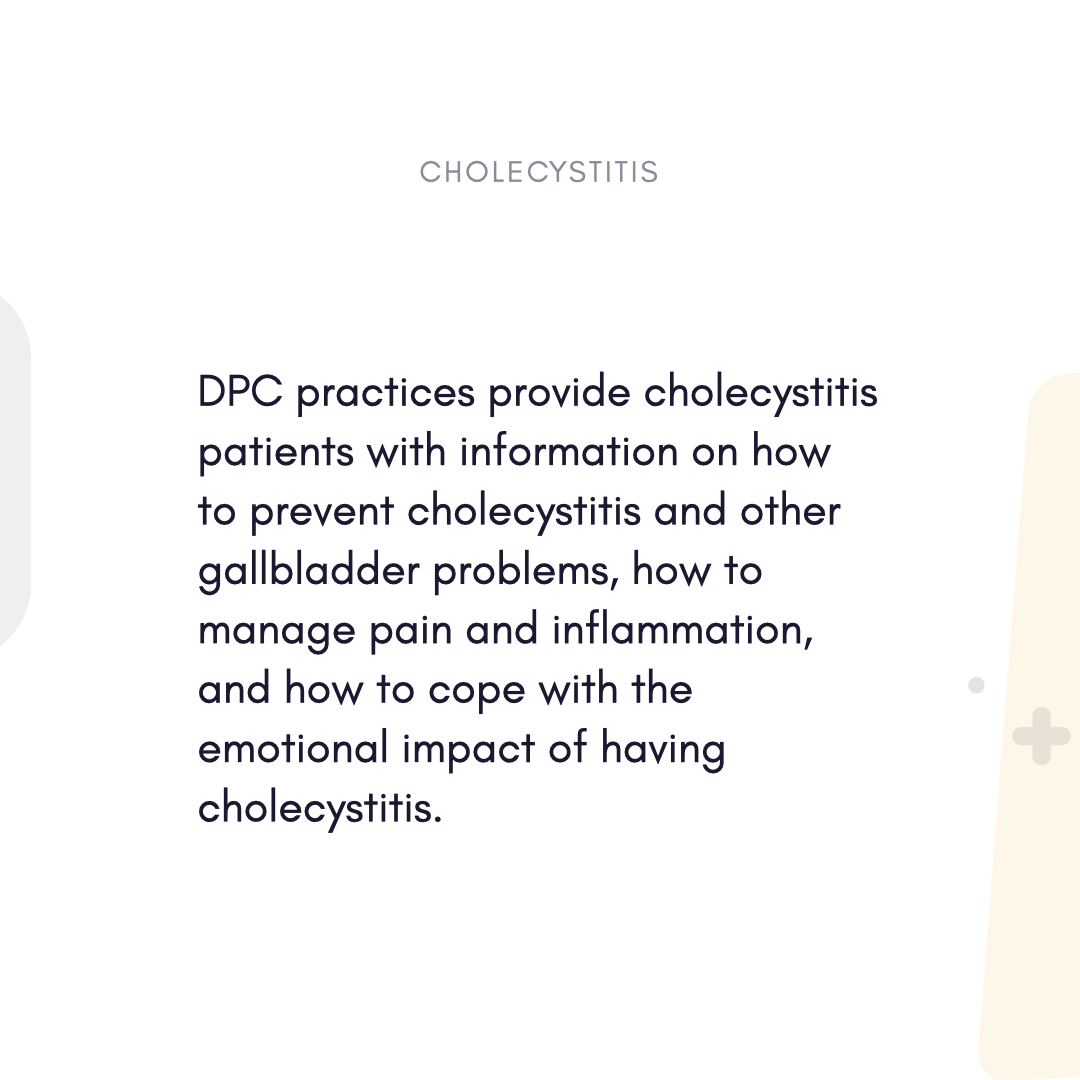Cholecystitis and Direct Primary Care (DPC): Coordinated, Cost-Effective Care for Gallbladder Health
Often brought on by gallstones blocking the cystic duct, cholecystitis demands early diagnosis and treatment to prevent complications including infection or rupture. Timely, guideline-aligned treatment is delivered under a membership model known as Direct Primary Care (DPC), which lets patients pay a flat fee directly to their provider, so supporting long-term gallbladder health, control of acute episodes, and coordination of surgical interventions.

DPC Enhances Cholecystitis Treatment (Quick Imaging & Diagnosis)
- Offer same-day visits for symptoms like severe upper-right abdominal pain, nausea, or fever.
- Rapidly order ultrasonography (gold standard for gallstones) or HIDA scans to confirm cholecystitis, avoiding diagnostic delays.
Clear Specialist Referrals (Surgical Coordination)
- Expedite referrals to surgeons for laparoscopic cholecystectomy—the recommended treatment for acute cholecystitis.
- Ensure optimal timing to minimize complications like gangrene or sepsis.
Acute Economic Treatment (Cost Transparency)
- Subscription model covers imaging coordination, post-operative follow-ups, and urgent visits.
- Avoid costly ER trips for minor issues by providing antibiotics, IV fluids, and NSAID pain relief tailored to clinical needs.
Tailored Cholecystitis Treatment in DPC (Comprehensive Care)
- Stabilize acute episodes with IV hydration, antibiotics (e.g., ceftriaxone/metronidazole), and pain management while planning surgery.
- Customize post-op low-fat, high-fiber diets to reduce gallstone recurrence and manage risk factors (obesity, rapid weight loss).
- Comorbidity integration: Address diabetes or metabolic syndrome to lower gallstone risk.
- Telehealth follow-ups: Manage incisional infections, track recovery, and address digestive changes (e.g., bile reflux).
Why DPC Is Perfect for Cholecystitis (Guideline-Aligned Care)
- Align with American College of Gastroenterology policies on imaging, antibiotics, and surgical referrals.
- Reduce unnecessary ER visits via early in-office evaluations for pain management/diagnostics.
- Cost clarity: Flat fees eliminate surprise bills for imaging, specialist coordination, or follow-ups.
- Patient education: Teach symptom recognition (e.g., Murphy’s sign) and when to seek urgent care.
How DPC Aids in Cholecystitis (Surgical & Preventive Focus)
- Ensure cholecystectomy occurs within 72 hours of diagnosis to reduce hospitalization rates.
- Track recovery, manage complications (wound infections), and adjust diets to prevent post-cholecystectomy syndrome.
- Preventive strategies: Target controllable factors (sedentary lifestyle, high-cholesterol diets) during wellness visits to prevent recurrent gallstones.
Final Notes (Seamless Care Coordination)
- DPC combines rapid diagnostics, surgical coordination, and lifestyle support to reduce complications, costs, and daily life disruptions.
- Empowers patients to navigate cholecystitis confidently with proactive, guideline-driven care.






